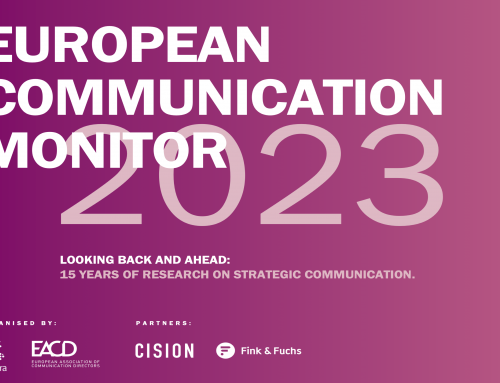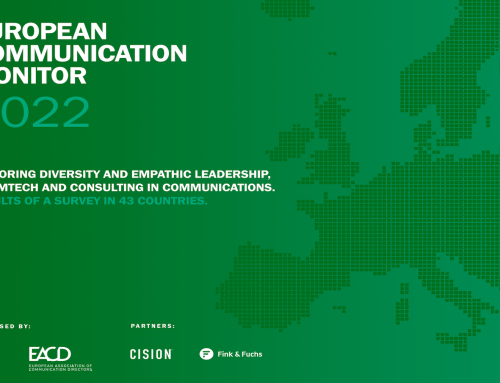The survey of some of Europe’s top heads of communication has revealed how strong the cult of the business CEO is becoming. With company news, successes and failure now so frequently attributed to specific individuals, the image of business leaders has become vital in terms of corporate reputation.
Nine out of ten corporate communication experts throughout Europe say their CEO’s capacity to deal with the media and other critical audiences has become interwoven with the overall success and reputation of their corporations.
 Explaining the headline results of this survey Professor Ansgar Zerfass (Leipzig University), leader of the international research team, said:
Explaining the headline results of this survey Professor Ansgar Zerfass (Leipzig University), leader of the international research team, said:
“The reputation of business leaders at large organisations is now so important. CEOs can make and break corporate brands. Gone are the days of figureheads gliding effortlessly behind the scenes. Today leaked career moves and public failure can infect a brand severely and quickly. In many cases the brand of the CEO has become shorthand for the brand of the organisation.”
Some insight from the study
 93.1% of 579 Chief Communication Officers agreed that their CEO’s communication skills in small group settings were an important factor for the overall success of an organisation.
93.1% of 579 Chief Communication Officers agreed that their CEO’s communication skills in small group settings were an important factor for the overall success of an organisation.
92.2% of 579 Chief Communication Officers agreed that their CEO’s communication skills facing the media and large audiences were an important factor for the overall success of an organisation.
90.5% of 579 Chief Communication Officers agreed that their CEO’s CEO’s personal reputation was an important factor for the overall success of an organisation.
81.7% of 579 Chief Communication Officers agreed that their CEO’s knowledge of strategic communication was an important factor for the overall success of an organisation.
Looking at different audience types: Overall the areas in which CEO reputation was regarded as most important were internal communications (24.6%), public & community relations (19.9%) and financial communications (19.3%) – source 467 Chief Communication Officers.
Breaking this down further: In terms of joint stock companies, the audiences to which CEO reputation was regarded as most important were financial communications (25.1%) and internal communications (24.0%). In terms of private companies, the audiences to which CEO reputation was regarded as most important were internal communications (25.5%), public & community relations (23.0%) and political communication (21.3%) – source 467 Chief Communication Officers.
83.2% of Corporate Communication teams were actively working on the positioning of their CEO. 66.9% were actively working on announcementsand tools relating specifically to their CEO. 66.7% were actively working on a communication strategy for their CEO and 60.3% were actively monitoring their CEO’s reputation – source 557 Chief Communication Officers.
30.8% of CEO messages were designed to convey their functional competencies (having the right skills to do the job). 30.3% of CEO messages were around ethical competencies (having the right values). 24.7% were around cognitive competencies (having the right knowledge) and 14.2% were around personal behaviors (having the right conduct) – source 458 Chief Communication Officers.
 Professor Dejan Verčič (University of Ljubljana), member of the international research team, interpreted:
Professor Dejan Verčič (University of Ljubljana), member of the international research team, interpreted:
“The top executive of a company articulates and symbolises what their organisations are and what they stand for. Essentially, they reduce company complexity and enliven the brand. We are living in an age of responsibility and accountability where the public are looking to identify with real people. Business leaders, who can easily be categorised as heroes or villains, are at the forefront of this change.”
 The days of a distant, barely invisible corporate authority is gone, explains David Gallagher, Ketchum’s CEO of Europe:
The days of a distant, barely invisible corporate authority is gone, explains David Gallagher, Ketchum’s CEO of Europe:
“The public are more interested in the individual who leads a company. They are interested in CEO personalities. The personalization of company stories is demanding CEOs be the brand.”




 Professor Dejan Verčič (University of Ljubljana), member of the international research team, interpreted:
Professor Dejan Verčič (University of Ljubljana), member of the international research team, interpreted:



